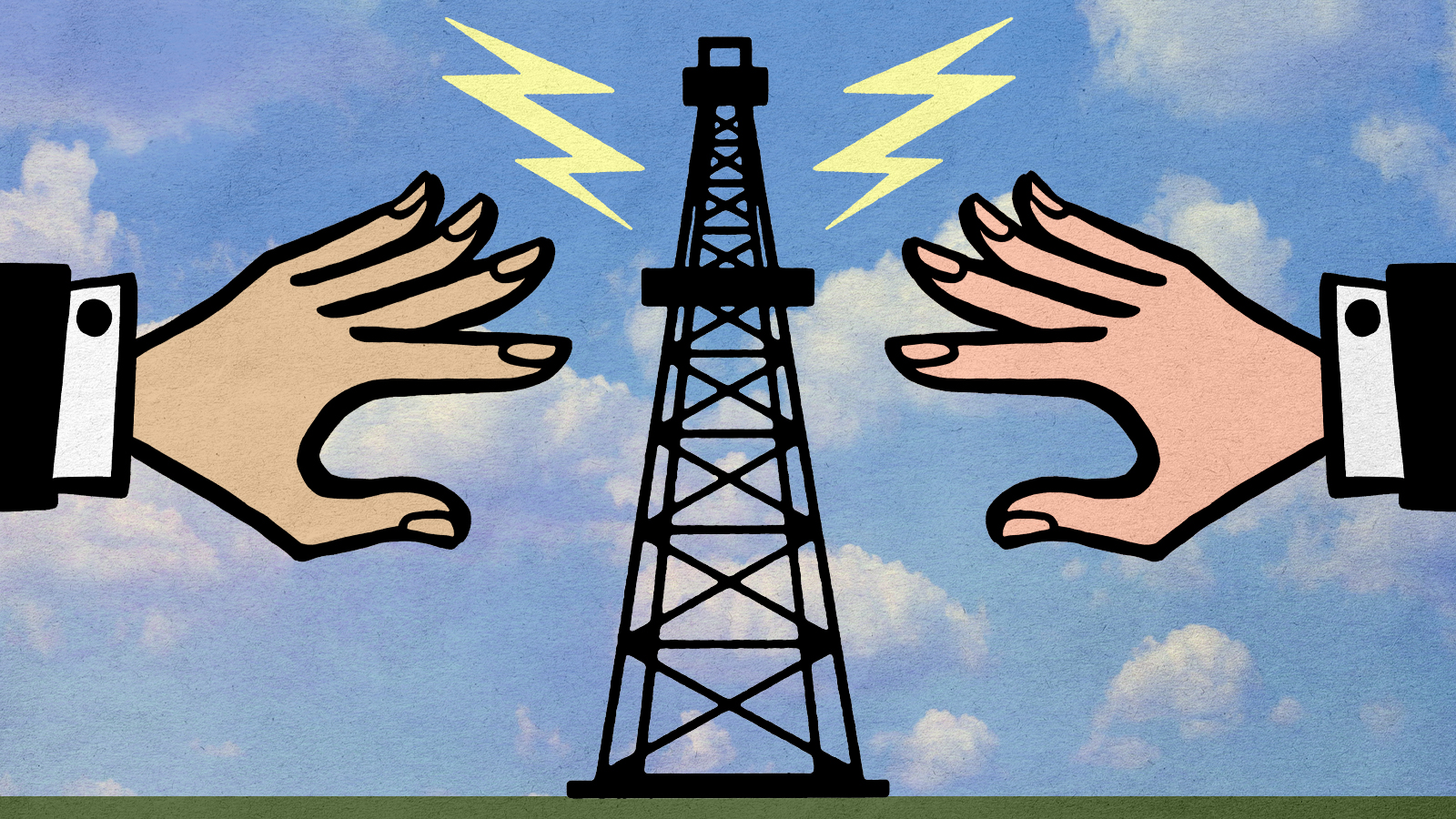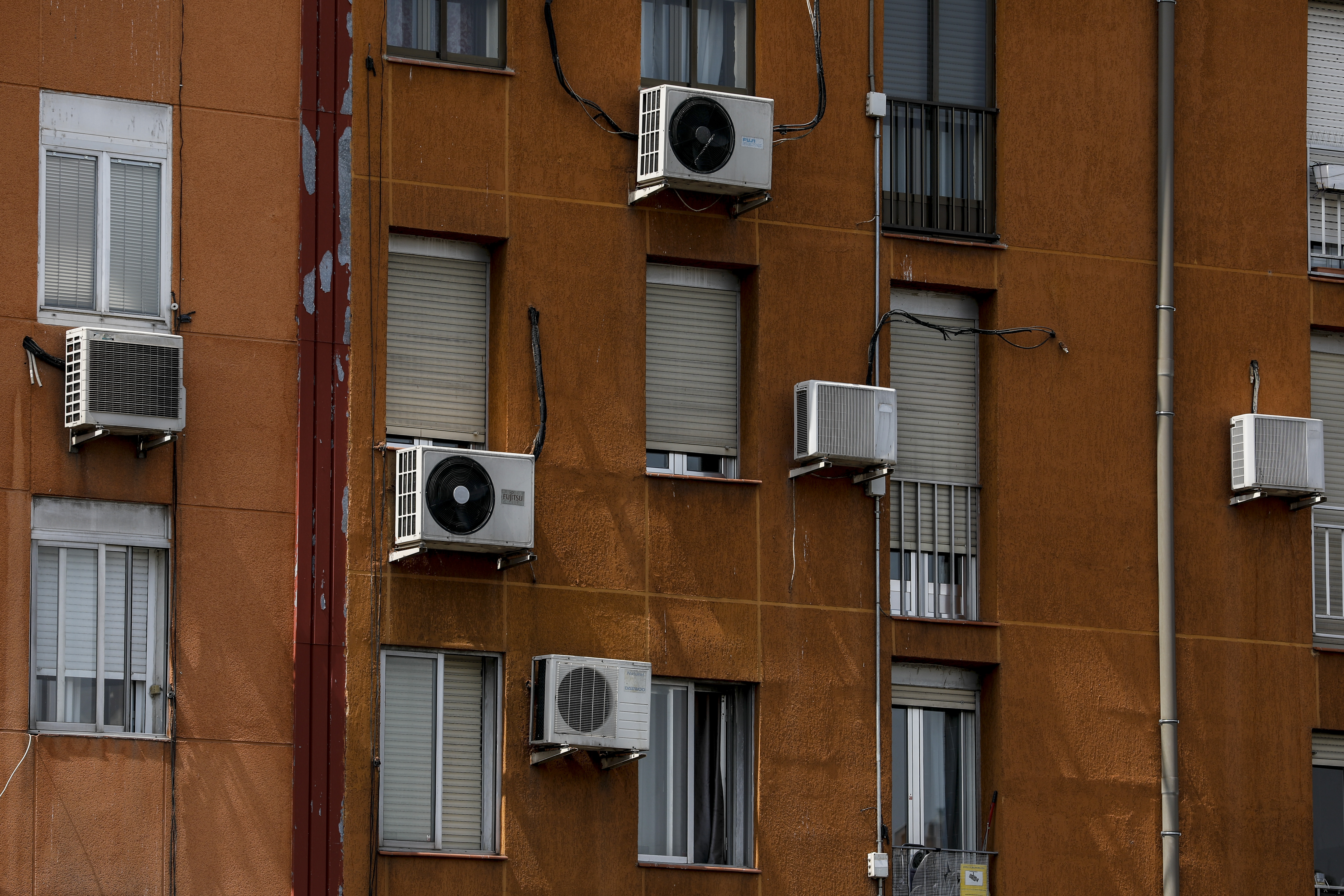The consequential war for control of Miami's Spanish-language radio
Republicans say they're trying to rebalance a system biased against conservatives — while Democrats say they're fighting disinformation


A free daily email with the biggest news stories of the day – and the best features from TheWeek.com
You are now subscribed
Your newsletter sign-up was successful
There's a battle raging for control of Spanish-language radio in the U.S., but if you aren't Latino — or don't live in Miami — you probably aren't following it closely, if at all. The people involved in this fight, however, describe it as a high-stakes contest for a key conduit of news and opinion to the politically up-for-grabs Latino community — with serious national implications.
In March, a group of investors with close ties to former President Donald Trump and also former Gov. Jeb Bush (R-Fla.) launched Miami-based Americano Media, the first national Spanish-language conservative radio network. At about the same time, a pair of Latina political activists and entrepreneurs who worked for Hillary Clinton and President Barack Obama entered talks to buy 18 Spanish-language stations across the U.S., including Radio Mambí, a station in Miami famous for its conservative politics.
Here's what you need to know about the battle for Spanish-language radio and why it matters:
The Week
Escape your echo chamber. Get the facts behind the news, plus analysis from multiple perspectives.

Sign up for The Week's Free Newsletters
From our morning news briefing to a weekly Good News Newsletter, get the best of The Week delivered directly to your inbox.
From our morning news briefing to a weekly Good News Newsletter, get the best of The Week delivered directly to your inbox.
Why fight over Spanish-language radio?
First of all, it's a big market.
"Radio listenership is higher among Hispanic consumers than among any other ethnic group," Jessica Retis, an expert on Latino media who now directs the School of Journalism at the University of Arizona, wrote in a 2019 report. "Ninety-five percent of Hispanic consumers tune into the radio in an average week." Nielsen estimates that radio reaches 97 percent of the U.S. Latino population each month — and 99 percent of Latinos over age 50.
And about 78 percent of Latino-focused media is solely in Spanish, versus 15 percent that's bilingual, BBC News reports, citing research from City University of New York.
But there's also a distinct political edge to the Spanish radio wars. The U.S. Latino population is diverse and has roots across Latin America, but Cuban-Americans have an outsized influence on Spanish-language radio.
A free daily email with the biggest news stories of the day – and the best features from TheWeek.com
That influence is most evident in Miami and elsewhere in South Florida — the central battleground — but "Cuban Americans also historically owned bilingual and Spanish-language media outlets and magazines in predominantly Mexican American regions of the U.S.," Axios reports. "Those outlets often spread conservative-leaning information about Cuba and Latin America unchallenged," according to Brigham Young University history professor Ignacio Garcia.
Are people really fired up about these radio ventures?
Yes, and it's pretty bipartisan.
Democrats warned that the launch of Americano Media could further pollute Latino airwaves with the kind of pro-Trump conspiracies and cries of "socialism" that hurt Democrats in 2020. "For those concerned about the disinformation problem harming Democrats' chances with Hispanics, this is a DEFCON-1 moment," Miami-based Democratic pollster Fernand Amandi told NBC News. "We should worry."
Republicans were no less incensed about the June announcement that the upstart Latino Media Network, cofounded by Jess Morales Rocketto and Stephanie Valencia, are buying Radio Mambí and 17 other Spanish-language stations across the U.S. Many conservatives fixated on the fact that the debt for the deal is being financed by Lakestar Finance LLC, a company affiliated with Democratic mega-donor George Soros. "George Soros and his group want to control Hispanic media to turn Radio Mambí into Radio Soros," Americano Media said. Florida Gov. Ron DeSantis (R) groused that the "Soros-funded" group is scheming to "manipulate local media in Florida to push their Marxist agenda on voters."
Florida Lt. Gov. Jeanette Nuñez, a longtime Radio Mambí listener, said she "will not stand for" this "attempt to control the narrative, to silence conservative viewpoints because it doesn't fit with an overall agenda that is, in my opinion, very damaging to this country."
"Liberal media want to censor one's opinion," Venezuelan-born Lourdes Ubieta, one of three Radio Mambí hosts who jumped to American Media, tells BBC News. "Silencing and canceling — that's the objective."
Liberals lodged similar complaints when conservative-leaning media company America CV Network bought one of Miami's only moderate Spanish-language stations, Radio Caracol, from Spanish media group PRISA in April 2021 — and fired its highest-rated host, Raul Martinez, less than 48 hours later. "When Republicans talk of cancel culture, you know why they're accusing Democrats and progressives?" Martinez, the former Democratic mayor of Hialeah, asked Newsweek. "Because they do it all the time."
Replacing the liberal Martinez with America CV's Juan Manuel Cao was "like replacing Rachel Maddow with Tucker Carlson," pollster Amandi told Newsweek. "This is another expanding tentacle in the right-wing media ecosystem that is trying to implant itself in south Florida by having ideological control of the airwaves that Hispanic voters most listen to."
Are the critics doing anything more than complaining?
A group of Republican lawmakers, led by Sen. Marco Rubio (R-Fla.), asked the FCC in a June letter to "thoroughly scrutinize" the Latino Media Network's $60 million deal to buy 18 radio stations from TelevisaUnivision, arguing the new owner "could exercise virtually uncontested influence over nearly one-third of all Hispanics across the country."
(Aside from Miami's Radio Mambí, the stations are in New York City; Los Angeles; Chicago; Houston; Dallas; San Antonio; Las Vegas; McAllen, Texas; and Fresno, California; most are music and sports radio.)
Some congressional Democrats tried a similar tactic with the purchase of Radio Caracol. "Radio waves are the people's waves, and the FCC needs to scrutinize each sale to make sure it is in the public good, and it could be quite possible that this is not in the public good," Rep. Darren Soto (D-Fla.) told The Miami Herald. "We saw similar stations perpetuate the big lie that President Trump won the election, which isn't true, and we saw the dangerous results of that."
What do the radio station buyers say?
Latino Media Network plans to look at the acquisition "from a business perspective" and "maintain the spirit of what these stations are," Valencia tells The Associated Press, assuming the FCC approves the purchase and her company can assume control in the second half of 2023. "How do we balance journalistic integrity and ensure we build spaces for free speech?"
"The stations we acquired in Miami have been institutions in the Cuban community for decades and Cuba's freedom is one of their flagship issues," the Latino Media Network said in a statement, and it is committed to "freedom at every level, a concept that is near and dear to the hearts of Miami's many communities, be that Cubans, Colombians, Haitians, Venezuelans, Nicaraguans, or otherwise."
Marcell Felipe, general counsel of America CV and head of the Inspire America Foundation, told The Miami Herald that critics "are trying to paint América TeVé as a Republican station and Inspire America as conservative. That's not true. We support Republicans as well as Democrats who are anti-Castro."
But Americano Media founder and CEO Ivan Garcia-Hidalgo said his company is about politics, and Democrats left the door wide open. "They're scared. And they should be," Garcia-Hidalgo told NBC News. "Democrats took Hispanics for granted for too long, and no one thought to create a home for us in conservative media. There is an appetite for this. You see it on social media. You see it in elections."
Does it really matter who owns the stations?
The people who are paying for these radio stations clearly think so. The conservatives in Miami-Dade say they are trying to preserve the political culture brought over by Cuban exiles. Americano's founders argue that they are trying to balance or expand a broader media ecosystem tilted against conservatives. And liberals say they are trying to bring diversity to Miami's monolithic anti-Democrat talk radio universe and fight the disinformation that has taken root on the Spanish-language airwaves.
On the electoral front, "political analysts say that the battle to reach Latinos over the airwaves will be of crucial importance for Democrats, who hope to stem slumping support for their party among Latino communities in Florida, South Texas, or Arizona," BBC News reports. Trump lost the Latino vote overall, but he improved his Latino vote share by 10 percentage points, gained 20 points in Miami-Dade County, and flipped a South Texas district.
A 2020 election postmortem from Equis, a firm focused on raising Latino civic participation founded by Latino Media Network's Valencia, found that the false narrative that Democrats embrace "socialism" was "a national phenomenon" among Latino voters. "This modern 'red panic' is a story about uncontested propaganda in isolated media ecosystems, what is sometimes reduced to 'disinformation,'" the study found.
"There's a pot of gold in using fearmongering by saying that our country is going to become the next Venezuela, in order to persuade them to either stay at home and not vote or vote for the people they want them to vote for," agreed Evelyn Pérez-Verdía, the chief strategy officer of Latino anti-disinformation firm We Are Más.
"Democrats don't appear to be satisfied with the control they have over national Hispanic networks," counters Giancarlo Sopo, a political analyst who worked for the Trump campaign in Florida. "Miami is one of the few media markets that has a real ideological diversity in Spanish-language news programs," he told el Nuevo Herald, pointing to the GOP's 15-point gain among Colombian Americans in 2020. "It is clear that this is a group receptive to conservative messages, and that's why it's natural for the media in South Florida to adjust its programming to satisfy the needs of that community."
Peter has worked as a news and culture writer and editor at The Week since the site's launch in 2008. He covers politics, world affairs, religion and cultural currents. His journalism career began as a copy editor at a financial newswire and has included editorial positions at The New York Times Magazine, Facts on File, and Oregon State University.
-
 The EU’s war on fast fashion
The EU’s war on fast fashionIn the Spotlight Bloc launches investigation into Shein over sale of weapons and ‘childlike’ sex dolls, alongside efforts to tax e-commerce giants and combat textile waste
-
 How to Get to Heaven from Belfast: a ‘highly entertaining ride’
How to Get to Heaven from Belfast: a ‘highly entertaining ride’The Week Recommends Mystery-comedy from the creator of Derry Girls should be ‘your new binge-watch’
-
 The 8 best TV shows of the 1960s
The 8 best TV shows of the 1960sThe standout shows of this decade take viewers from outer space to the Wild West
-
 AI's boost for students and teachers in higher education
AI's boost for students and teachers in higher educationSpeed Read
-
 Artificial intelligence goes to school
Artificial intelligence goes to schoolSpeed Read AI is transforming education from grade school to grad school and making take-home essays obsolete
-
 Could AI be harmful to people's health?
Could AI be harmful to people's health?The Explainer Artifical intelligence's use in online content and health care tech raises concerns
-
 NPC streamers are having a moment
NPC streamers are having a momentSpeed Read A look behind the viral TikTok trend that has the internet saying, "Mmm, ice cream so good"
-
 Creatives are fighting back against AI with lawsuits
Creatives are fighting back against AI with lawsuitsSpeed Read Will legal action force AI companies to change how they train their programs?
-
 Forget junk mail. Junk content is the new nuisance, thanks to AI.
Forget junk mail. Junk content is the new nuisance, thanks to AI.Speed Read AI-generative models are driving a surge in content on fake news sites
-
 World's reduced thirst for oil may be foiled by developing countries' challenges
World's reduced thirst for oil may be foiled by developing countries' challengesSpeed Read Will developing nations slow the peak of global oil demand?
-
 The movement to make A/C energy efficient
The movement to make A/C energy efficientSpeed Read Air conditioners have been bad for the planet, but we'll likely continue to need them.
